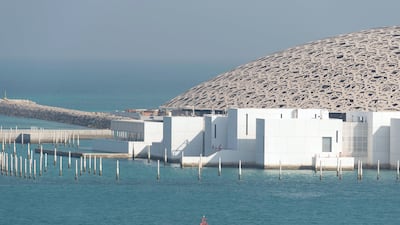Given Louvre Abu Dhabi's aspirations, the bar has been set very high. "See humanity in a new light" runs the strapline for the institution's new marketing campaign, which is accompanied by a specially commissioned poem by the Booker Prize-winning author Ben Okri.
"Our dream is to unite that which has been separated by history. To return the many to the one. A great story unites us all, beyond colour and creed and gender," runs the ode, echoing the statements that have been made by the new museum's curators, whose aim is nothing less than a rewrite of the history of art and civilisation.
As Okri recently told The Art Newspaper, a museum like Louvre Abu Dhabi could be pivotal in reminding people that we are all members of the same human family: "not them against us, or us against them, but all of us together, at our best, helping to make a world our children will be proud to live in."
If that sounds hopelessly utopian, Louvre Abu Dhabi’s self-proclaimed mission has a resonance that is echoing elsewhere.
In September, Hartwig Fischer, the recently-appointed new head of the British Museum, announced plans for a major reorganisation of the institution’s permanent collection.
The aim, he explained, will be to help visitors “address broader issues and change the way you look at objects, to enable visitors to make comparisons between cultures”, which sounds very much like a more pragmatic version of Louvre Abu Dhabi’s universal approach.
Both involve a rebalancing of history and the creation of new narratives about world cultures that move beyond an exclusively European point of view.
The team at Louvre Abu Dhabi has tried to ensure that such a change takes place by training a new generation of Emirati curators, but this is a long-term project whose success will only be able to be measured once the museum’s collection evolves.
The response of visitors will also be a key measure of success. At its best, the museum is a paean to the power of beauty – in its architecture, its objects and the stories it will celebrate – but if those narratives do not recognise the complications that can come with connectivity, the museum's message will fail to ring true.
The nature of the difference Louvre Abu Dhabi may make will be shaped in part by the values it espouses – of equality and enquiry, openness and tolerance – but its impact will ultimately rest on its ability to inspire and to change people's minds, factors that are difficult to assess.
In terms of its values, the museum is starting in the right place, but to stay the course it will need to foster a sense of affinity with local communities, to encourage people to reconsider their place in the world and be brave enough to explore difficult issues.

